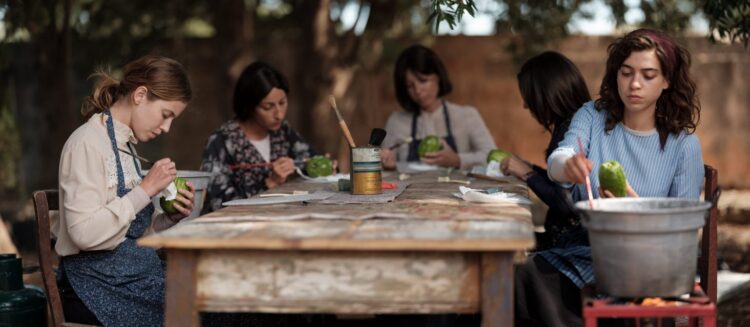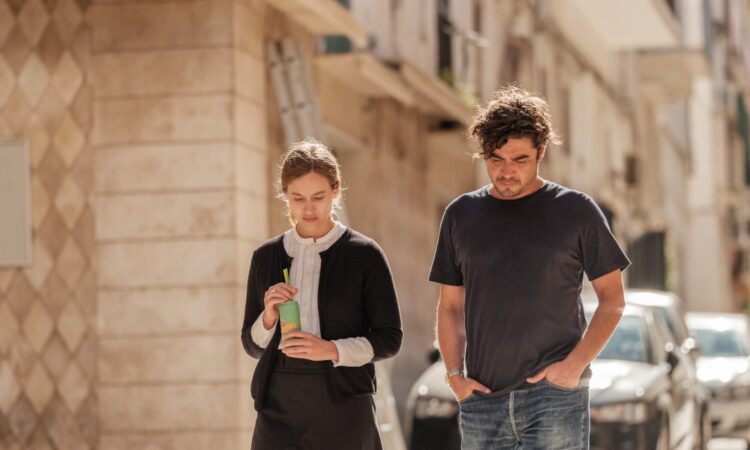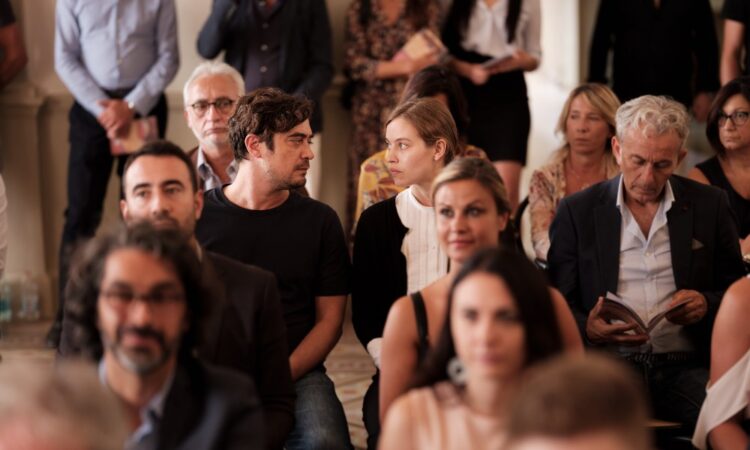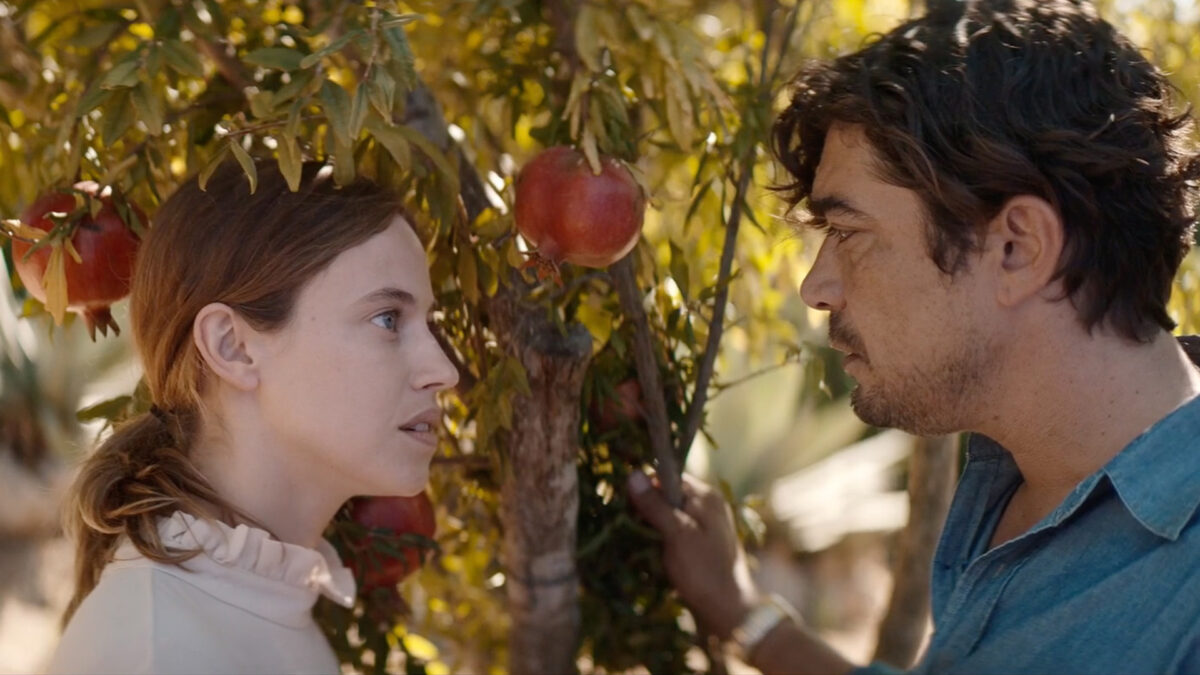Stephane Freiss’ deeply atmospheric movie, Where Life Begins, unfolds on an idyllic farm in southern Italy divorced from contemporary ills and troubles. Yet it is precisely here, amid gently rolling hills, gnarled olive trees, a lush citron grove and a bleating herd of sheep, that unpleasant truths emerge.
This Italian and French co-production, presented by the Toronto Jewish Film Foundation, will have its Canadian premiere on Sunday, October 2 at 2 p.m. at the Cineplex Varsity theater. It can be viewed online from October 11-13.
In the first scene, Esther (Lou de Laage), an attractive young Jewish woman, is writing a letter to her father, an ultra-Orthodox rabbi, from the comfort of this farm in Calabria.
She is pouring out her heart.
“My truth is different than yours,” she writes with piercing candor. “Your world is in black and white. My world is in color.”
In what will surely be a devastating blow to her father, Esther informs him she has lost her religious faith and asks for his forgiveness, which he is unlikely to grant.
At this point, the film goes back to the recent past. Esther and her family, accompanied by a group of haredi Jews, arrive at Elio’s farm. They are not here on vacation. They embark on this annual trip to collect and package citrons for the Sukkot holiday. They are expressly cultivated by Elio (Riccardo Scamarcio) for Esther’s wizened father, Zelik (Paul-Henry Salfati).

Elio, a quiet and sensitive man in his mid-40s, inherited the property from his late father. Although he takes his responsibilities seriously, his heart is not in farming, but rather in art. He’s an artist who keeps a sketch pad handy and is familiar with the great painters of Europe, particularly Amadeo Modigliani, a Jewish artist whose life was a cut short by illness.
He’s also lonely. His marriage has dissolved, and he’s far from his beloved children in Rome.
Esther, 26 and still single, is also unsettled. She feels stifled in the socially conservative and repressive milieu in which she was raised and longs to enter the forbidden secular world that presents itself so enticingly at Elio’s farm. For Esther, it represents two qualities she values — freedom and spontaneity.
From the moment she sets foot at the farm, Esther is drawn to Elio. He, ironically, is impressed by the “discipline” of her world.

Slowly but surely, the pair establish a bond, forming an outwardly platonic relationship that, in spiritual terms, is quite profound. Scamarcio and De Laage acquit themselves effortlessly in these demanding roles.
Zelik wants Esther to marry Ariel, a young man from a similar background, but Esther is utterly disinterested in him and pines for Elio, who plays it cool out of respect for Zelik.

There are tender and evocative moments as the film reaches its denouement, during which Esther and Elio assert their mutual feelings. But their subtle demonstrations of affection do not necessarily mean they are at liberty to break with the restraints of the status quo.
Where Life Begins underscores the perennial theme that people are not always free to act on their emotions.
